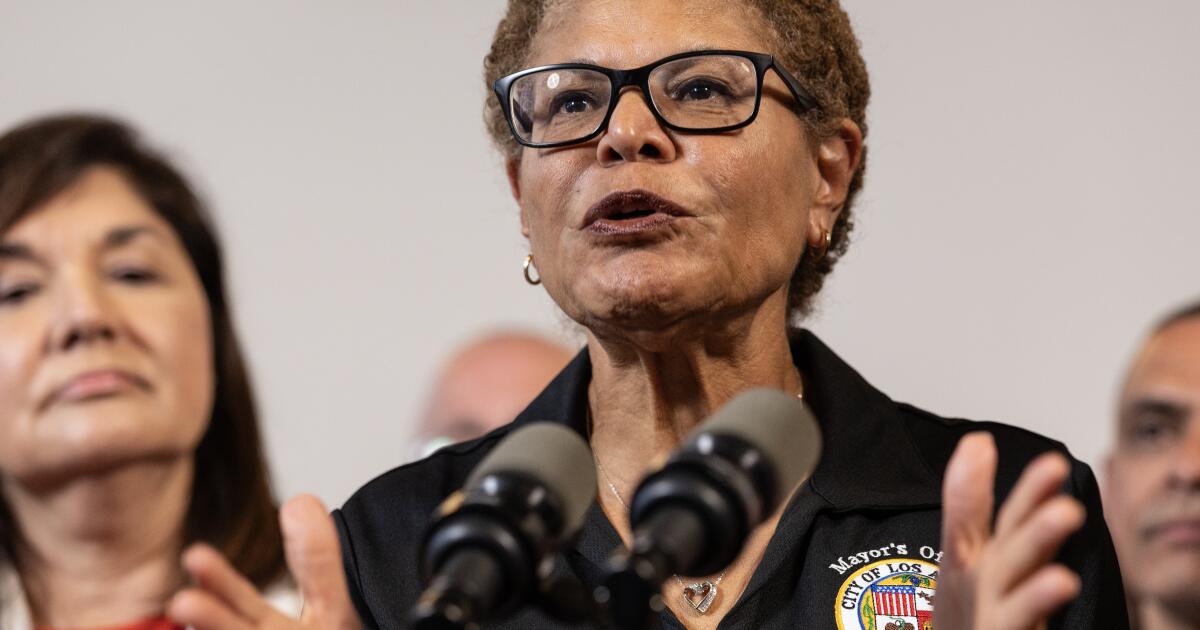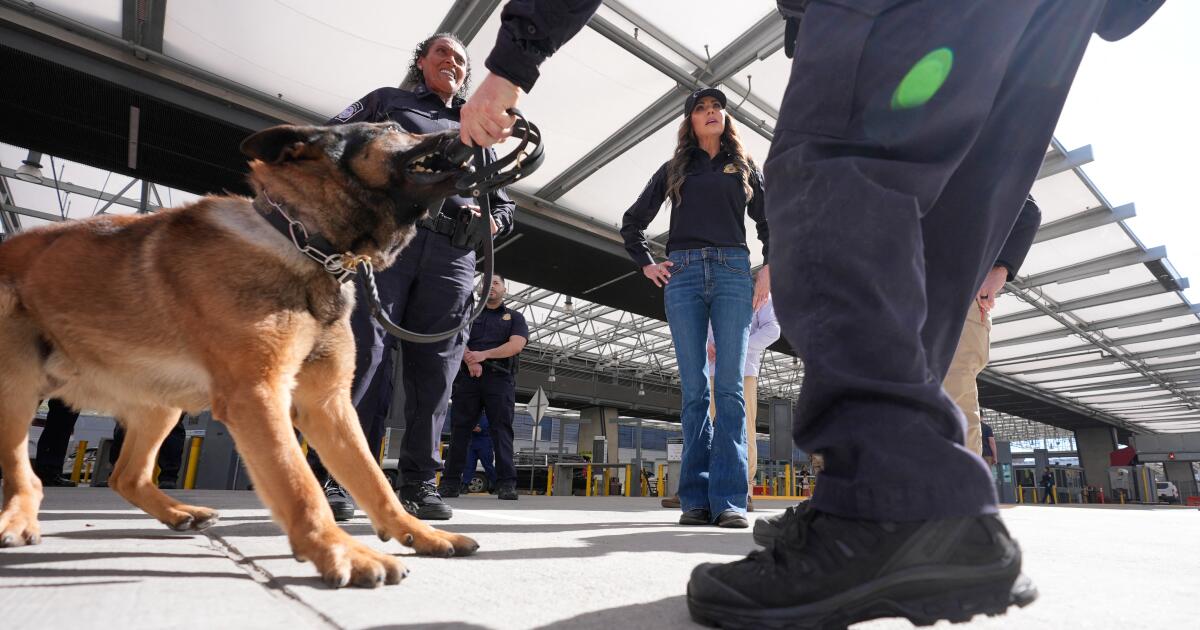L.A. will provide cash assistance to immigrants affected by raids
Mayor Karen Bass announced a plan Friday to provide direct cash assistance to people who have been affected by the Trump administration’s sweeping immigration raids.
The aid will be distributed using cash cards with a “couple hundred” dollars on them, which should be available in about a week, Bass said at a news conference.
“You have people who don’t want to leave their homes, who are not going to work, and they are in need of cash,” she said.
Bass spoke about a family she met who needed two incomes to afford their rent. After one of the breadwinners was detained in an immigration raid, she said, the family is concerned they may face eviction.
It was not immediately clear what the qualifications will be needed to receive the cards.
The mayor emphasized that the money will not come from city coffers but from philanthropic partners. The cards will be distributed by immigrants rights groups such as the Coalition for Humane Immigrant Rights of Los Angeles.
The city will coordinate between philanthropists and organizations distributing the cards, according to the mayor’s office.
The mayor compared the program to “Angeleno Cards,” created by Mayor Eric Garcetti in 2020 to give financial assistance to people struggling during the COVID-19 pandemic.
The announcement came during a Bass news conference about an executive order she signed Friday directing all city departments to “bolster protocols” and training on how to comply with the city’s sanctuary policy, which states that city employees and city property may not be used to “investigate, cite, arrest, hold, transfer or detain any person” for the purpose of immigration enforcement, except for serious crimes. Departments will have to come up with their plans within two weeks.
The Trump administration sued the city over the sanctuary policy last month, arguing that it discriminates against organizations like ICE.
The executive order also creates a working group that will examine — and possibly update — the LAPD’s policy on responding to immigration enforcement. Since 1979, the LAPD has taken a strong stance against enforcing federal immigration law, prohibiting its officers from initiating contact with anyone for the sole purpose of learning their immigration status.
The executive order also includes a directive to file Freedom of Information Act requests for Immigration and Customs Enforcement to turn over records with the dates and locations of every raid in the city since June 6, as well as the identities of the people detained and the reason for their detention.
The cash cards are one of a slew of announcements — including the executive order — this week by the mayor in response to the federal immigration crackdown in Los Angeles that has entered its second month.
Earlier this week, Bass and the city attorney announced the city’s intention to join a lawsuit calling for an end to the Trump administration’s “unlawful” raids in the city.

